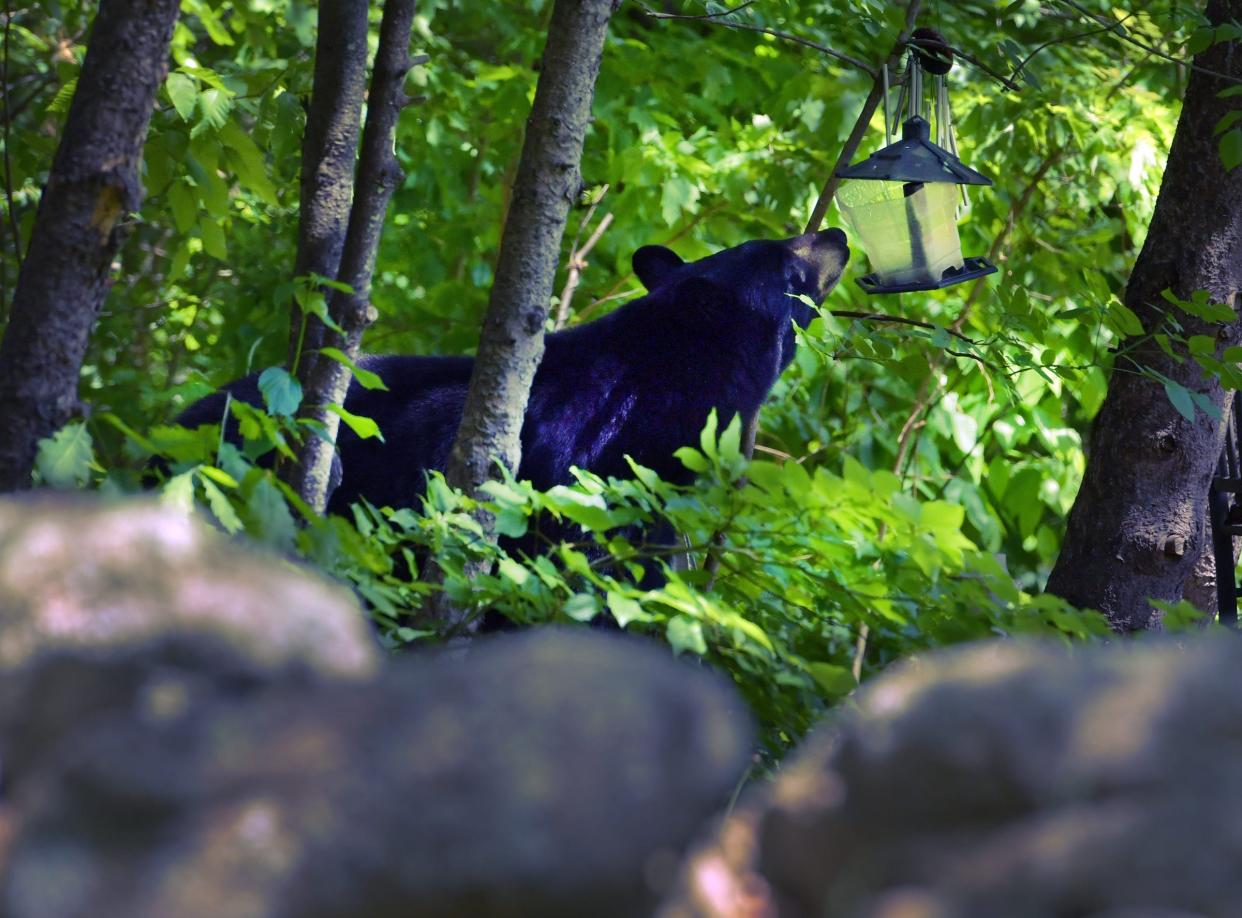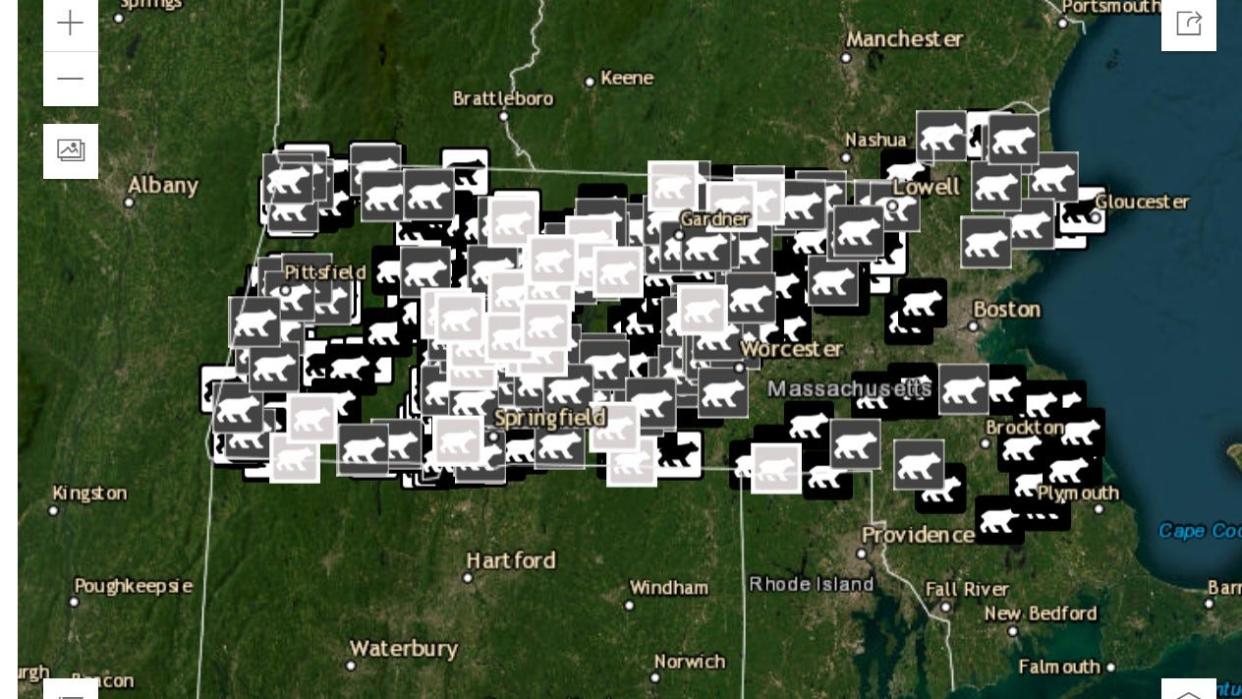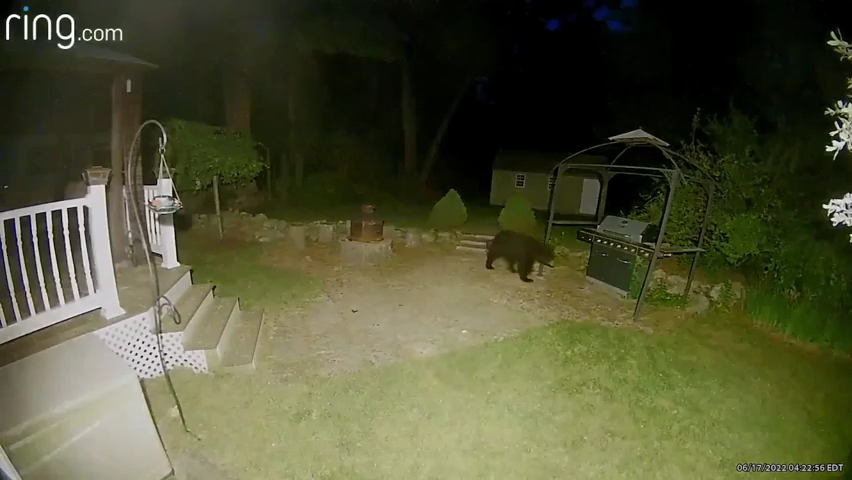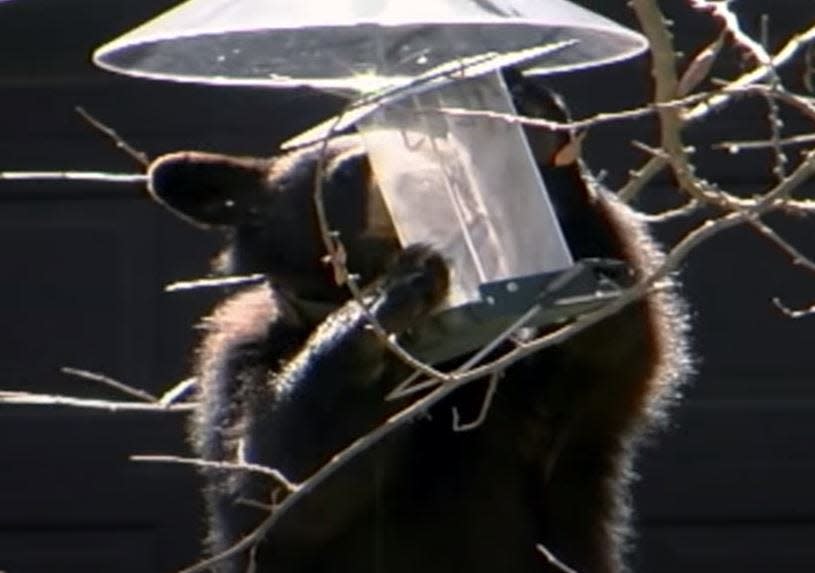What happened to the black bear that was shot in Kingston. Here is what we know.
This summer, black bears have been spotted in residential neighborhoods across southeastern Massachusetts, but as they move into increasing urban territories, run-ins with their human neighbors are bound to happen.
While most of the run-ins this summer have been harmless, a few weeks ago, a Kingston resident was forced to shoot a bear attacking his livestock.
According to MassWildlife's Black Bear and Furbearer Biologist Dave Wattles, an investigation of the incident revealed that the bear grabbed the man’s goat by the throat. The bear dropped the goat but instead of scurrying away, it turned towards the man instead. In fear of his life, the man shot the bear.
The bear was later tracked to an area where it was seen alive, said Wattles. Officials chose to let the bear be because it wasn’t a threat to the public.

Officials went out a few days later to see if they could find the bear but saw no sign of it.
SIGHTINGS: Another bear sighting on the South Shore. How a kids camp handled it
“At this point, we don’t know if the bear traveled somewhere else and expired, or if he’s alive and moving through southeastern Massachusetts,” said Wattles.
Here’s what to know about the incident, and how it can be prevented moving forward.
How many bears are in southeastern Massachusetts right now?
There’s at least two, maybe three bears in Southeastern Massachusetts, said Wattles.

“At first, we thought it was an individual but after a month or so, we started getting concurrent reports of two bears down that way,” he said. “All are thought to be young males. That’s typically what we see in that portion of the state.”
New to Brockton? Here's a list of places to eat, drink and visit in the city
Was it legal to shoot the bear?
According to Wattles, the action taken by the resident was perfectly legal.
“There’s a law in Massachusetts that allows you to kill an animal that’s causing property damage and certainly an attack on livestock qualifies as that,” said Wattles. “And when the bear dropped the goat and turned to him, his initial reaction was fear for his safety.”
Will the injured bear be OK?
While the status of the injured bear is unknown, Wattles says bears can survive and deal with very severe injuries.
“Bears are regularly involved in vehicle collisions in Massachusetts and can suffer some catastrophic injuries. But they're later seen limping in areas for periods of months or years afterwards,” he said. “As long as they can get around and find food, they can deal with those injuries.”
More: As black bears in Mass. move east, Brockton area may get 'an established bear population'
Why haven’t officials taken action to move the bears?
According to Wattles, some bears spend their entire lives in very urban places, but the threat to the public is still minimal. One even spent a few years living on the University of Massachusetts Amherst campus, right next to a dining hall that serves hundreds of people every day.

“They’re using very developed places, but we can allow black bears to be there because they’re not inherently aggressive towards people,” said Wattles. “If they posed a public safety threat, we wouldn’t tolerate it. But simply having them there in the community isn’t a threat."
Officials would, however, take action to move the bear if it had wondered into downtown Brockton, said Wattles. “It’s not because the bear has done something wrong, but because it’s so heavily developed the bear is likely to get into a vehicle collision,” he said.
How can residents prevent these kinds of conflicts?
"We recommend residents remove food sources around their homes, like bird feeders, which train the bear to come into your yard to try to find food, increasing the chances of an interaction,” said Wattles. “Shooting the bear doesn’t get to the root problem, which is an unsecured food source. We try to work with people who have backyard chickens or bees to use electric fencing, but it can also be used for larger livestock as well."

Are there any benefits to having resident bears?
“Bears will scavenge on dead carcasses, so they clean up the landscape and they also eat a lot of berries, so they help to disperse those seeds,” said Wattles. “Bears are a native wildlife species in Massachusetts and having the full complement of wildlife in our natural areas is important. Even though Southeastern Massachusetts is highly developed, there’s still a lot of forested natural habitat. It’s my option that a bear has a role to play in there.”
This article originally appeared on The Enterprise: Black bear shot in Kingston after attacking goat
